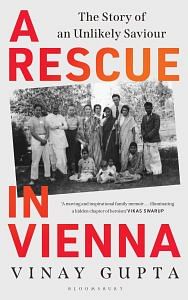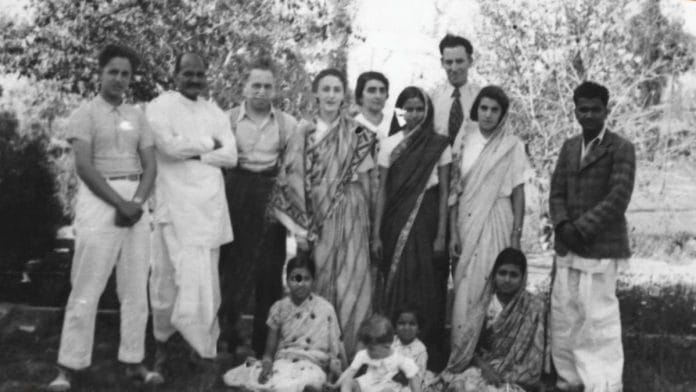Pleased at how everything seemed to be working out with Fritz Weiss and Alfred Wachsler, Kundanlal wondered if he could do more, identify other Jewish families in a similar predicament. His next move has to be admired for its supreme audacity: he walked over to the local newspaper office and paid for an advertisement in the ‘help wanted’ section, asking for men with expertise in woodworking and textile weaving who would be willing to move to India.
One of the first people to respond to the advertisement was Hans Losch. Born in Vienna in May 1908, to Jewish parents, Losch had studied textile design in Vienna and Germany and after graduating had worked for a number of cloth mills in Austria and Czechoslovakia. His parents now lived in Czechoslovakia.
In a dull monotone, Losch explained his dilemma to the exotic man sitting across from him. ‘After working at my father’s cloth mill across the border, in Czechoslovakia for five years, I moved back to Vienna in 1936, as I was getting married to a local Viennese girl. On returning to Vienna, I took a job with Herzfeld & Fischel, designing fabric. But as a consequence of new laws against Jews, I lost my job. As if that is not bad enough, I am now getting divorced as well.’
To corroborate his story, Losch pulled out a sheet of paper and handed it to Kundanlal, who perused the testimonial from Herzfeld & Fischel written in English: ‘We hereby certify that Mr. Hans Losch born 23rd May 1908 at Vienna, a citizen of Vienna was employed in our Technical Department from March 23rd 1937 to June 30th 1938. He was in charge of the creation of fancy goods, analysing and calculation. Mr. Losch is an efficient expert who has a wide technical knowledge and has always fulfilled his duties industriously and conscientiously. We can therefore highly recommend him to everybody. We have to dispense with his services as we no longer employ Jews in our factory.’
Kundanlal wondered why the letter was in English and not German. Did they expect this letter to be used outside Germany? The tone of the testimonial suggested Losch’s employers did not subscribe to the anti-Semitic miasma pervasive across Austria, and had reluctantly parted with Losch’s services.
Also read: Mao Zedong viewed India as a major ideological rival in Asia
Losch continued to expound on his situation. ‘My father has been forced to sell his factory in Czechoslovakia to a local Gentile at a ridiculously low price. I have to get out of Austria before they kill me. But first I need a visa from some country, any country.’ He turned up his palms in supplication.
Kundanlal expressed his sympathy for the man’s predicament. Then he said, ‘I own a cloth mill in India that I have been trying to get off the ground. With your skills, the business could really prosper. I can get you a visa for India, by offering a personal financial guarantee. I already have done so for a few other Jewish families.’
‘Really!’ Losch was astonished. ‘You would be willing to do that for me?’
‘Of course, you and others if possible.’ Kundanlal permitted himself the faintest of smiles.
‘How long would it take to get a visa for India?’
‘A few weeks. As I said, I have done it for a few others already so I know the process to get through the British embassy in Vienna.’
The downcast expression on Losch’s face disappeared. ‘Unglaublich! How would I get to where you live in India?’
‘I live in a city called Ludhiana. You take a steamship to Bombay. From Bombay you would take a train to Ludhiana.’
Kundanlal found it odd that the man did not ask any questions about living or work conditions in Ludhiana; Losch’s not until the following year would he gain an insight into Losch’s surprising lack of curiosity. Immediately, Hans Losch signed an agreement to become the manager of Kundan Cloth Mills in Ludhiana on the same terms as living Fritz Weiss: 25 per cent of the profits, with housing and all living expenses to be borne by Kundanlal. Losch picked up his copy of the documents with care, gave Kundanlal a double-handed handshake, and with profuse thanks exited the room; he had a long list of preparations ahead of him. The agreement and a personal financial guarantee signed by Kundanlal once again turned out to be sufficient to acquire a visa to India.
 This excerpt from Vinay Gupta’s ‘A Rescue in Vienna’ has been published with permission from Bloomsbury Publishing India.
This excerpt from Vinay Gupta’s ‘A Rescue in Vienna’ has been published with permission from Bloomsbury Publishing India.






